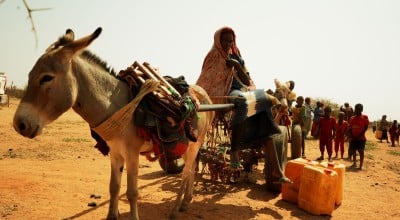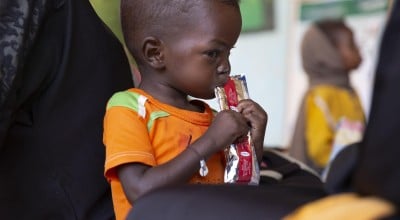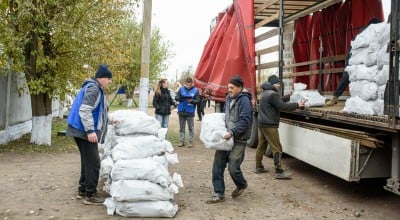
Read our 2024 annual report

Knowledge Hub
'Flood victims suffer the same devastating trauma whether in Ireland or Nepal'
Concern aid worker has said the flood victims in Donegal are suffering a similar trauma to the flood victims in Nepal with communities facing serious hardship by the consequences of flood damage.
Eileen Morrow, who is Concern Worldwide’s Country Director in Nepal, has witnessed the extensive damage caused by heavy rainfall, where floods have so far killed at least 141 people, destroyed 65,000 homes and left 150,000 families displaced.
The Dublin woman said that while the scale of the aftermath in Donegal is not as high as the scale in Nepal, India and Bangladesh where millions are impacted, the effect on every person is similar. She said:
Ireland and other parts of the world are feeling the devastating effects of flood damage. Flooding doesn’t just destroy homes and vital infrastructure, it can have a much deeper impact on communities and livelihoods than other emergencies. It is a seriously traumatic event and has long reaching consequences. My thoughts are with all the people affected.
I walked around a village in Laximpur in Rautahat district, one of the worst affected areas in Nepal, and saw collapsed houses and the muddy water line from the flood waters was over six feet high on some of the buildings – including the local school. One woman told me that it was lucky that like the 2015 earthquake the floods happened on a Saturday during the day time or they would have lost half their children.
Eileen said it is notoriously difficult to raise funds for floods in general especially for this flood-prone region:
With the exception of the Irish and UK government, donors have been slow to provide funds here in Nepal. This is generally the case with floods; for some reason floods don’t generate the kind of financial support other emergencies – such as earthquakes do. This is extremely worrying given the increased trends of major flooding and the level of devastation they incur, whether in Donegal or Nepal.
She revealed that the south of Nepal – where much of its agricultural production is based - was worst affected:
People were trying to dry out their animal food in the streets but they showed me that it was already rotten. Many families lost animals and the air was full of the smell of decomposing livestock – a major health risk. One man showed me his grain store, he told me it used to be full to the brim and then he put his hand in and pulled out nothing but muddy, rotting rice – this family alone lost months’ worth of stored food, animal feed and fuel. Their entire rice crop - which was due to be harvested soon - is still under a foot of water and is ruined. Thousands of households face the same problems, in an area of Nepal which already suffers from extremely high rates of malnutrition and chronic poverty.
Concern has been working closely with its aid agency partners People in Need and Welthungerhilfe as part of Alliance2015, which is a partnership of European NGOs, providing food, water and other aid to the most vulnerable.
Together with its partners, Concern has been packing and distributing food to 11,600 families – over 70,000 people and making sure families have water purification tablets to prevent the spread of waterborne diseases – a huge risk after floods.
They also have a helpdesk and free hotline set up to deal with any complaints or issues flood survivors have as they get assistance – for example, if a flood affected family has been left off the list for assistance by mistake.
Concern said it and its Alliance2015 partners will continue their close cooperation with local governments to ensure that none of the affected households are left behind as relief and recovery efforts continue to arrive.
For more information or interview requests, please call Kevin Jenkinson at 086 358 2886 or by email: kevin.jenkinson@concern.net

Other ways to help
Corporate support
Is your company interested in working together for a common cause?
Fundraise for Concern
From mountain trekking to marathon running, cake sales to table quizzes, there are lots of ways you can support our work.
Buy a gift
With an extensive range of alternative gifts, we have something to suit everybody.
Leave a gift in your will
Leave the world a better place with a life-changing legacy.
Volunteer with Concern
The lots of ways to get involved with our work as a volunteer
School fundraising
Without the generous support from schools, we wouldn't be able to do the work that we do.




